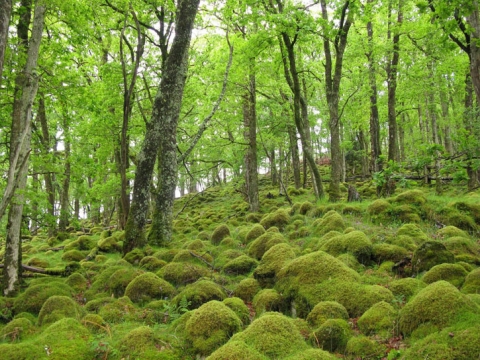Campaigners demand “full legal protection” for Scotland’s ancient woodlands

A petition has been lodged with the Scottish Parliament (Scottish Gaelic: Pàrlamaid na h-Alba) demanding ministers take action to give full legal protection to Scotland's ancient woodlands before Glasgow hosts the COP26 climate conference in November next year. The petition was created by Rhu (Scottish Gaelic: An Rubha) residents Audrey Baird and Fiona Baker, on behalf of the Help Trees Help Us campaign group. More people can back the petition before its closing date of Wednesday, August 5.
Ancient woodland is defined as land that has been continually wooded since at least 1750. At the moment there is no legislation specifically protecting them, albeit that official policy includes a strong presumption against removal. The Native Woodland Survey of Scotland, carried out between 2006 and 2013, suggested native woodlands cover just four per cent of the country. It has been estimated that there is just one per cent of ancient woodland left in Scotland.
As reported on the Scottish newspaper the Helensburgh Advertiser, West of Scotland Green Member of the Scottish Parliament Ross Greer said: “Scotland is losing ancient woodland at a worrying rate and not only is it a disaster for local wildlife and communities, every loss is a blow to our efforts against the climate crisis.
“As we’ve seen at Portincaple, Balloch and other locations, ancient woodland is regularly under severe threat from developers whose priority is turning a profit. This petition is absolutely right to be calling for a more rigorous and cautious approach.
“We need to see ancient woodland not just as groups of trees, but as unique ecosystems developed over many years, with wild flowers, insects and animals dependent on and thriving in them. I hope that Parliament’s petitions committee will recognise this.”
Image: Forestry and Land Scotland "Moss covered boulders under mature oakwood Argyll".





